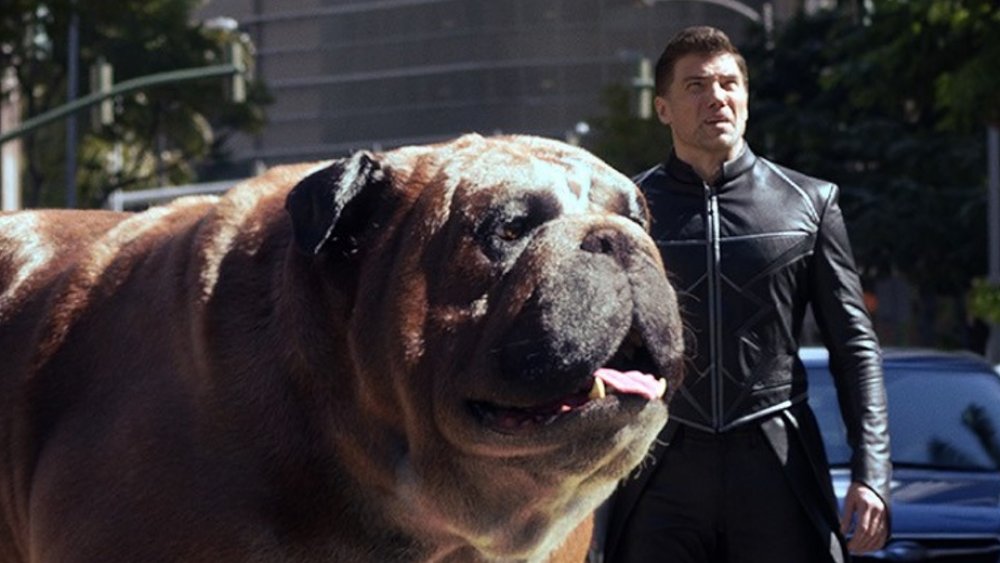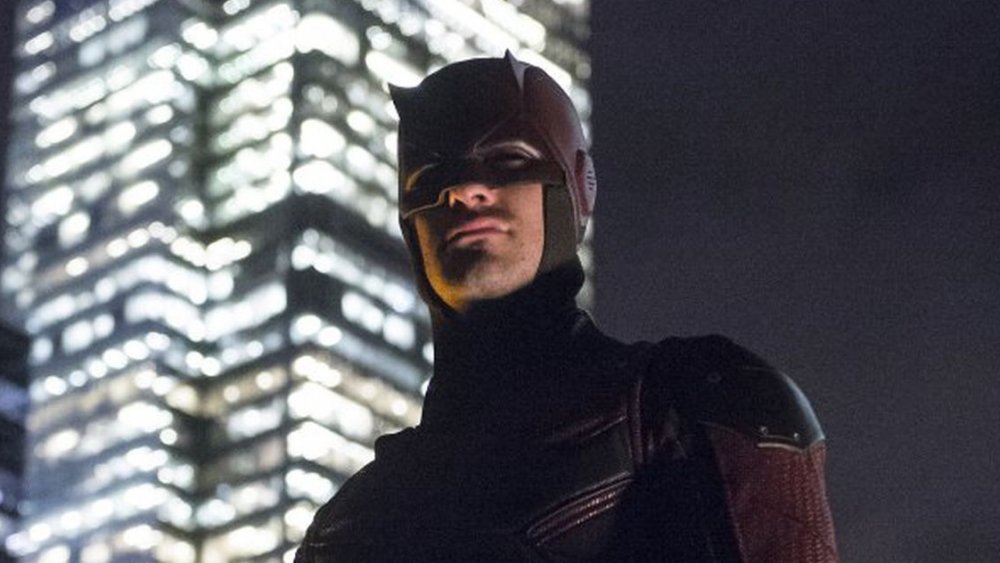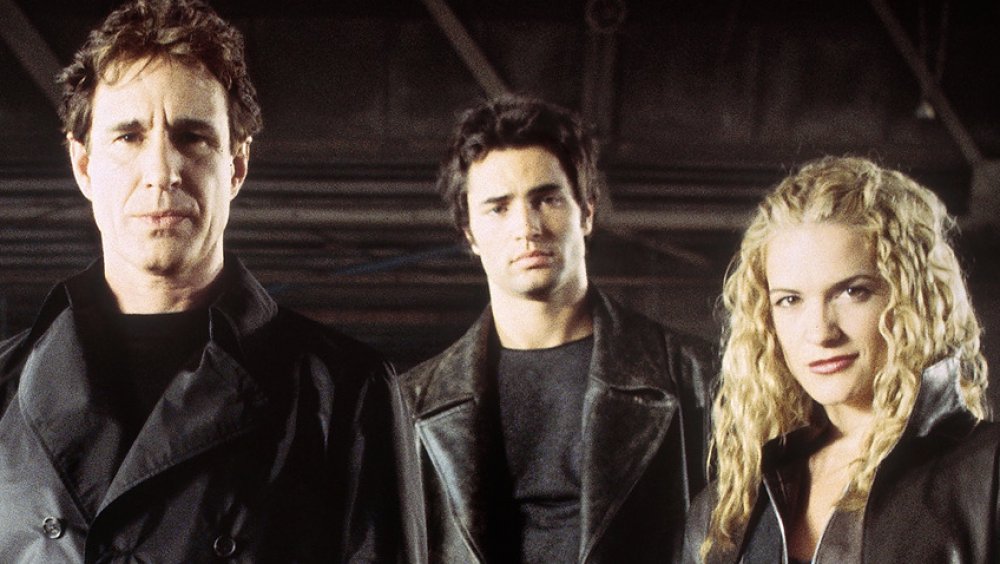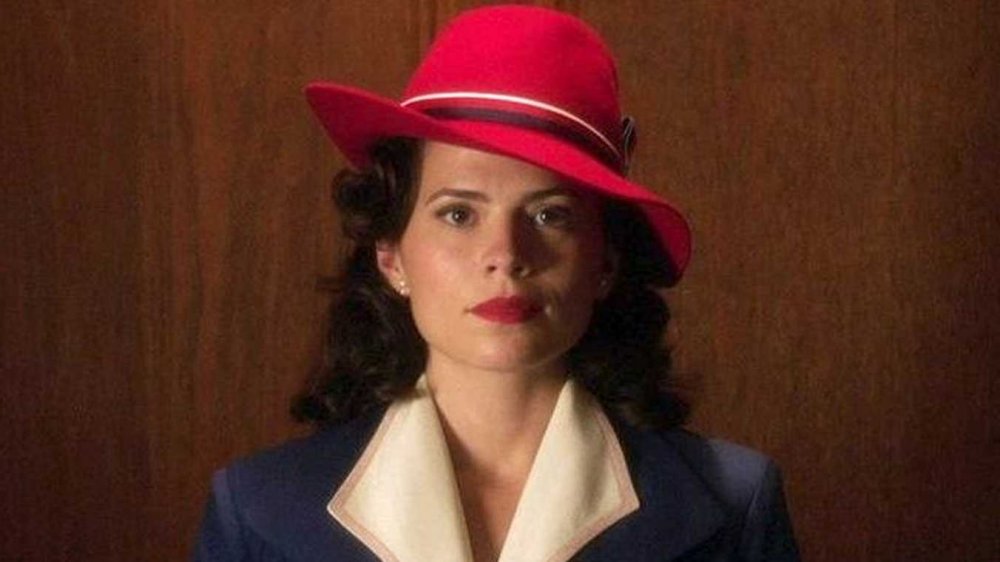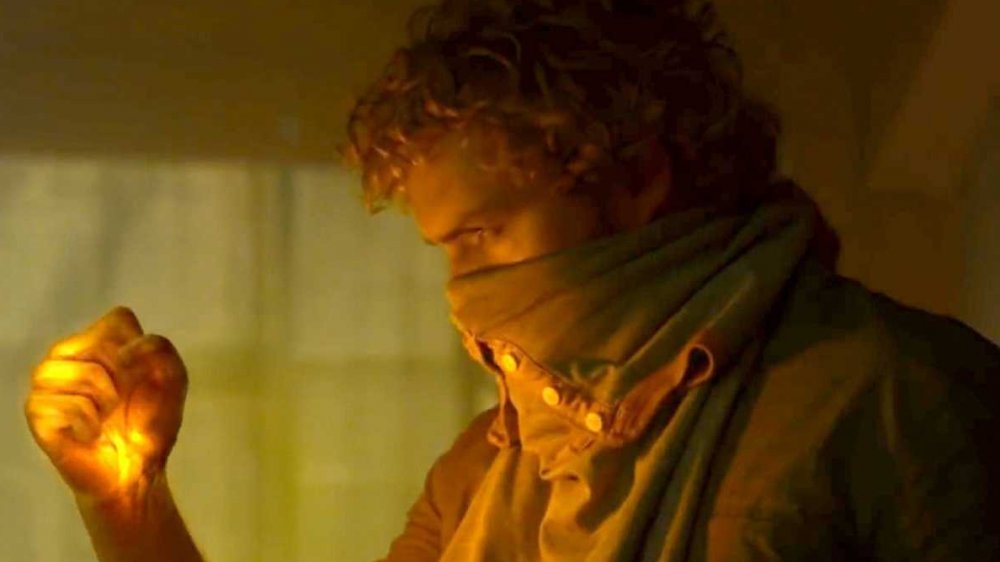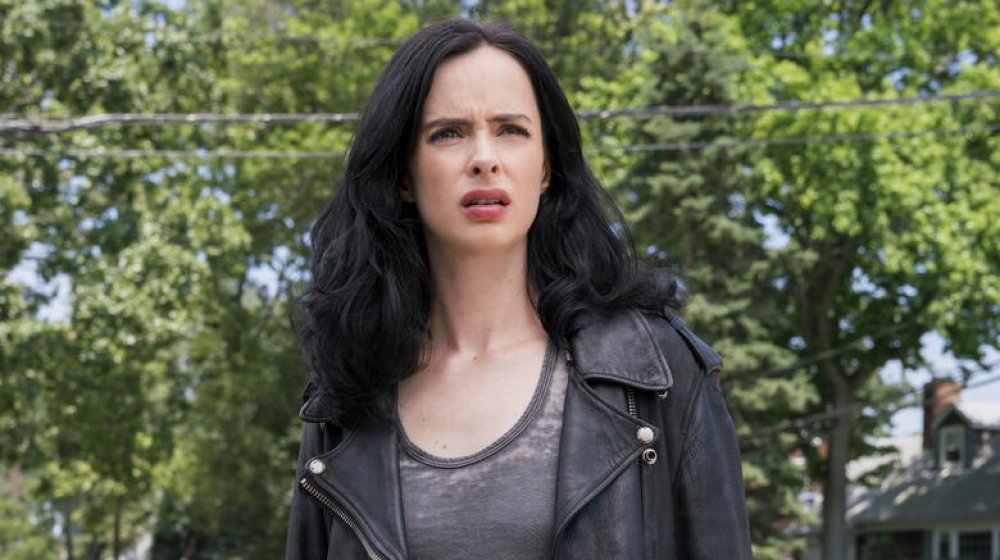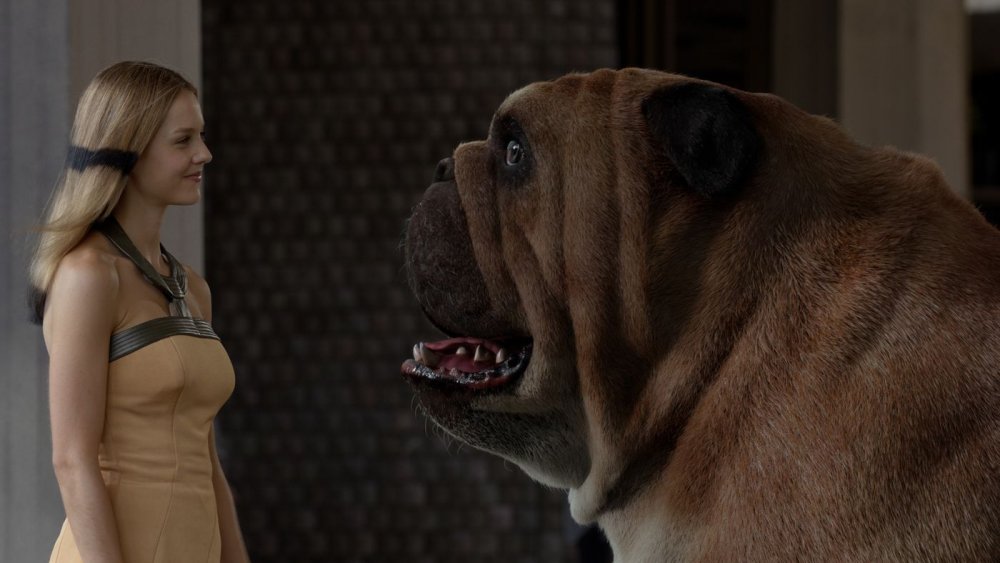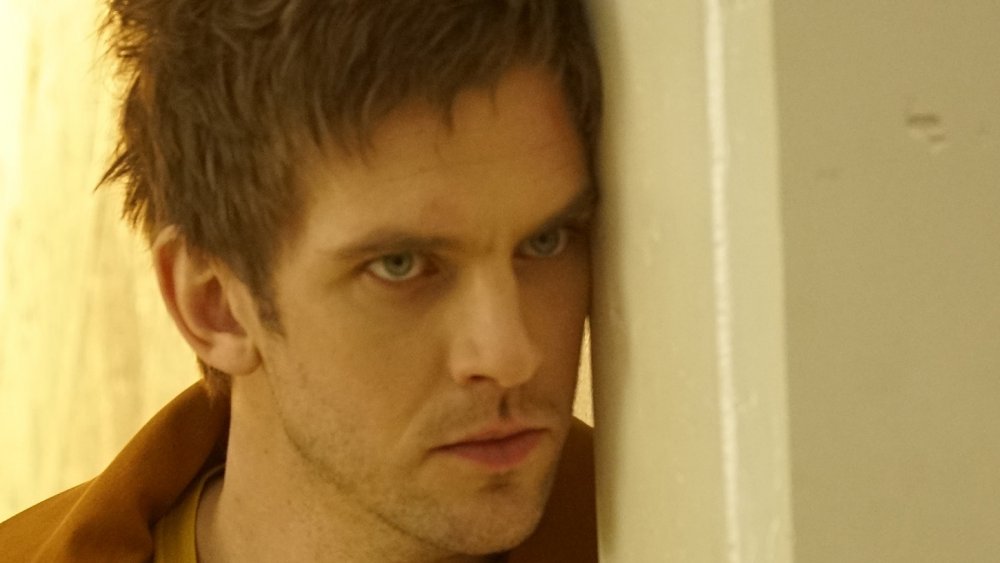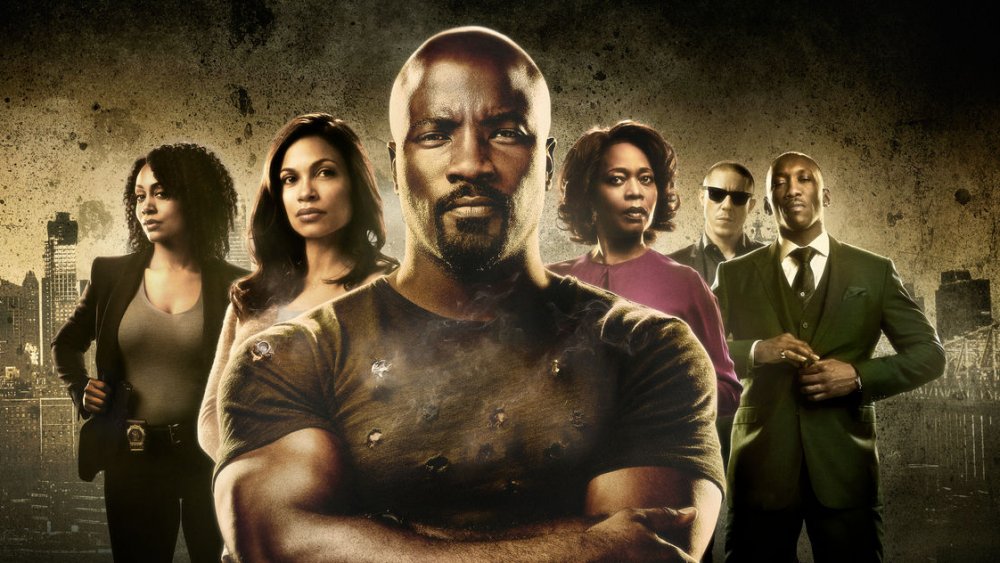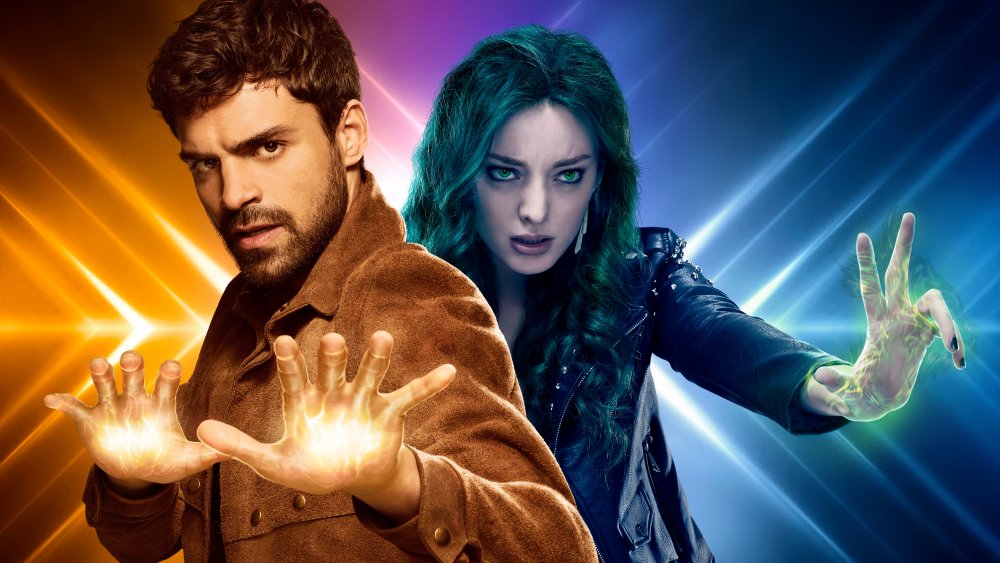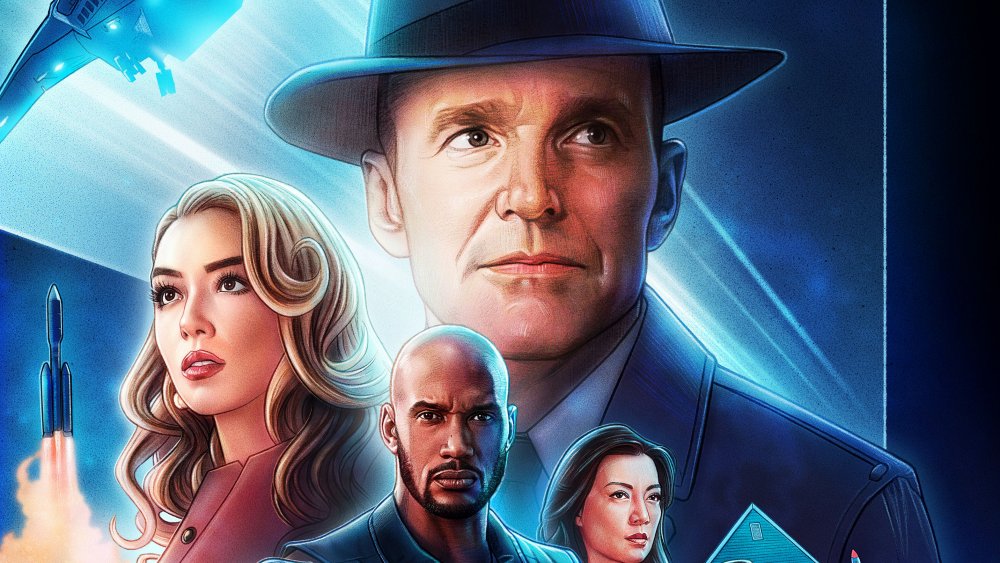The Real Reason These Marvel TV Shows Were Canceled
For years, Marvel only had a meager presence in the world of live-action television. While the Spider-Man and Incredible Hulk shows on CBS in the 1970s drew big ratings, Marvel tended to concentrate on animated fare when it came to TV. That all changed in the 21st century, when theatrical films based on Marvel properties turned the Marvel name into one of the most lucrative brands on the planet. Marvel had already dominated comics and films — now it was time for them to conquer television. Prior to 2010, Marvel characters had only been adapted into six live-action TV shows. Since 2010, there have been 13 programs utilizing Marvel's rich library of characters — and that doesn't include upcoming Marvel TV shows like Helstrom and The Falcon and the Winter Soldier.
Over the years, the various Marvel TV shows have explored a wide range of styles and tones. However, they all share the common thread of eventually being canceled. The reasons behind the individual cancellations vary wildly from show to show — some came to a halt because of lackluster ratings or behind-the-scenes struggles, while others were luckier to have more control over how long they lasted on the air. Whatever the reason, even the mightiest of Marvel's superheroes haven't been able to escape the inevitable fate of cancellation. Here's a look back at the factors that led to these superhero TV shows being defeated.
Daredevil (Netflix)
"Just pitched @netflix #Daredevil Season 4. Fingers crossed!" So read a tweet from Daredevil season 3 showrunner Erik Oleson on November 16, 2018. There was reason to be hopeful for more Daredevil seasons. The show had debuted on Netflix in April 2015 to critical acclaim, with a Rotten Tomatoes consensus that read "Daredevil excels as an effective superhero origin story, a gritty procedural, and an exciting action adventure."
The positive reviews continued on for its next two seasons, with its third season being described as "both thought-provoking and entertaining" by Ciaran Kerr of Film Bunker. Even in the wake of fellow Netflix/Marvel shows Iron Fist and Luke Cage getting cancelled, it seemed like a given that the widely liked Daredevil would continue on. However, 13 days after Oleson's Daredevil season 4 pitch, the show was cancelled. The end of the show was so sudden it even caught series star Charlie Cox off guard.
"A lot of us really expected to keep going, and I certainly did," Cox told Entertainment Weekly. "The truth is, I felt like we had a lot of stories to tell, and although I understand [the cancellation], I'm very saddened by that." According to the Hollywood Reporter, Daredevil's sudden ending was due to tensions between Marvel and Netflix, as well as Netflix wanting to own more of the content it aired. The Man Without Fear defeated many powerful foes over three seasons, yet even Daredevil couldn't overcome the forces that led to his show's demise.
Mutant X (Syndicated)
Nearly 20 years before the New Mutants movie, a different take on the New Mutants concept made waves in syndicated television in the form of Mutant X. The rare Marvel TV program to star original characters, Mutant X was about a group of people who acquire superpowers after being exposed to genetic experiments. Geneticist Adam Kane (John Shea) helps these "New Mutants" control their powers, find other other mutants, and stay ahead of the law.
Mutant X managed to survive three seasons despite ongoing lawsuits from 20th Century Fox, who claimed that they had exclusive rights to any live-action X-Men properties in film and television. In the eyes of Fox, Mutant X was so close to X-Men that they viewed it as Marvel's attempt to create an "X-Men replacement". This prompted a countersuit from Marvel. While such legal issues were troublesome, they weren't the reason Mutant X was eventually pulled off the air.
That was entirely due to Mutant X production company Fireworks Entertainment. In April 2004, the show's cancellation was accompanied by news of Fireworks' financial turmoil. "Fireworks was the primary producer for a number of series, mostly action /adventure shows for the U.S. syndication market," IGN reported at the time. "As the demand in the U.S. for such programming has declined over the past few years, Fireworks was faced with rising debt." Thanks to the money woes of Fireworks Entertainment, the New Mutants at the center of Mutant X quickly became old news.
Agent Carter (ABC)
Spinning off from a Marvel One-Shot short film of the same name, the Agent Carter TV show focused on the exploits of Peggy Carter (Hayley Atwell). Co-founder of S.H.I.E.L.D. and love interest of Steve Rogers in Captain America: The First Avenger, Carter's season one adventures took place in the aftermath of World War II. For future seasons, Atwell saw the series as having the potential to span time periods beyond the 1940s.
"Obviously, the era is 1946 but in the second, third, fourth, fifth season — if it goes onto that — we can explore different time periods," Atwell explained to IGN. "We can explore the late forties, the early '50s, the '60s, the '70s, the '80s, up until present day, so it's very exciting because of that." However, the show never got to fulfill Atwell's ambitions. Running for just two seasons, Agent Carter was canceled in May 2016.
The cancellation was attributed to a number of factors, including "a network political thing" on the part of ABC, per Atwell in an IGN interview. Series producer Michele Fazekas had previously predicted that low ratings would doom the show. "While I would love to see it continue on, it's a bummer — a bummer for all of us, cast included," Fazekas said to Entertainment Weekly. "We're not really involved in those decisions anyway. At the end of the day, people have to watch the show." Unfortunately for Peggy Carter, not enough people tuned into Agent Carter, cutting her solo adventures short.
Iron Fist (Netflix)
The story of supposedly deceased Danny Rand (Finn Jones) returning home to New York City with magical kung fu powers, Iron Fist did not get off to a great start critically. Iron Fist's first season garnered only a 20% Rotten Tomatoes score, making it one of the worst-reviewed properties in the Marvel Cinematic Universe, and was met with pre-release controversy over the casting of a white actor as the titular lead. "There's a show inside Iron Fist that's worth a chance," Karen Han of Slashfilm wrote in her review of Iron Fist's first season. "But it's a tough sell when you have to get through a significant number of Russian nesting dolls to get to it."
While a second season in September 2018 obtained better reviews, scoring a 57% rating on Rotten Tomatoes, the end was already closing in on Danny Rand and company. In October 2018, Iron Fist became the first Marvel/Netflix show to get canceled despite, as reported by Deadline, Marvel wanting to continue the show. At the time, no reason was given for the cancellation. In the weeks after Iron Fist's demise, however, other Marvel/Netflix shows like Daredevil and Luke Cage would be canceled due to Marvel and Netflix's creative differences. When reporting on Daredevil's cancellation, Deadline noted that "strained relations" existed between the two companies. The critically maligned Iron Fist was one of a number of shows to get caught in those corporate crosshairs.
Jessica Jones (Netflix)
Superhero-turned-private investigator Jessica Jones kicked off her three-season run with a debut season that didn't flinch from tackling heavy subjects like sexual assault and misogyny. Even in a crowded superhero TV show landscape, Jones' ability to confront heady material made it a critical darling. Still, the show was never going to last forever, particularly after its creator, Melissa Rosenberg, signed an exclusive deal with Warner Bros. Television in August 2018 in the hopes of "doing something different".
The sense that the end was near for Jessica Jones was heightened once Netflix canceled most of its Marvel shows in October and November 2018. "That's when we knew that this was clearly a business decision and that we would be on the chopping block as well," Rosenberg told the Hollywood Reporter. "But that was quite early on, so we were able to make adjustments to really finish the storytelling, and it ended really quite perfectly, actually."
Jones was canceled by Netflix in February 2019, four months prior to its final season's premiere in June 2019. This allowed the writers of Jones' third season a chance to create an ending concrete enough that Rosenberg doesn't see an immediate need to return to the world of Jessica Jones. "I feel like Krysten and I have told the story of this version of the character," Rosenberg told Entertainment Weekly. "So, I don't know, it would feel odd to visit it again, but never say never, certainly in the Marvel world."
Inhumans (ABC)
Inhumans began as a groundbreaking concept. Once planned as a theatrical film from Marvel Studios, Inhumans became a TV show uniting Marvel Television and IMAX, with the first two episodes premiering in IMAX theaters before the rest of the program aired Friday nights on ABC. Part of these lofty aspirations was to have Inhumans span multiple seasons. Showrunner Scott Buck had specific plans in mind for where Inhumans would go. "We have ideas. We know our starting point for season 2, but we don't know if there will be a season 2," Buck said in an interview with Collider. "We generally know where the first three seasons could go."
However, Inhumans failed to garner viewership — either in theaters or on television. The IMAX run of Inhumans drew just $1.5 million at the domestic box office, a number that IMAX CEO Gelfond attributed to "misalignment of customer expectations." A month later, the first two Inhumans episodes only scored 3.75 million viewers when they aired on ABC. Its numbers would fall by nearly 50% by the time its season finale drew 1.95 million viewers. The heavily hyped show also drew dismal reviews thanks to plots revolving around events like Medusa getting her super-powered hair shaved and Lockjaw the bulldog getting hit by a dirt bike. Six months after its last episode aired, ABC quietly canceled Inhumans, ending the existence of a show that started out with plenty of hype but ended on a muted whimper.
Legion (FX)
Many TV shows end unexpectedly, leaving cliffhangers and character arcs dangling in the wind, never to be resolved. In the case of Legion, though, the length of its run was entirely in the hands of its creator, Noah Hawley. This was made apparent as early as June 2016 by FX head John Landgraf. "Even in success, Legion might end after three seasons because that might be all the story there is to tell," Landgraf said. "We are going to make Legion as much as Noah has a story, so that can be three seasons, five seasons or seven."
Even with so much control over how long Legion would last, Hawley wasn't always certain how long it'd stick around. Right after Legion's first season concluded, he told Collider that "I think by the end of the second year I'll have a better sense of how many more years there are to go." By February 2019, he was far more certain of how long he wanted Legion to run "I think endings are what give stories meaning," Hawley said at the Television Critics Association's winter press tour. "I always thought about this as a complete story, and it felt like three acts of a story." While Legion was full of trippy imagery and storytelling details that thrived on a sense of chaos, its time on the air was determined in a far more controlled process.
Luke Cage (Netflix)
A sense of mystery surrounded the demises of the Marvel/Netflix shows. No specific reasons were given beyond tensions between Marvel Television and Netflix. An exception emerged in Luke Cage, a show chronicling the titular superhero's adventures as the super-powered protector of Harlem. When Deadline broke the news of Luke Cage's cancellation in October 2018, they also outlined behind-the-scenes struggles that had led to the program's termination.
Prior to Luke Cage's cancellation, a writers' room had been assembled to pen stories for a third season. However, executives from Marvel and Netflix had expressed dissatisfaction over the five completed scripts that the writers had produced. Then there was the costly nature of Luke Cage, and most pivotal of all was Marvel and Netflix's disagreement over how many episodes should be in the third season. Theses issues all combined to ensure that Cage was canceled.
This news proved dispiriting for Luke Cage showrunner Cheo Hodari Coker, who had concocted big plans for its third season. "But what I can say is that we had a very good season planned, and it was one that I think would have brought Luke Cage as a character full circle," Coker told SyFy Wire in February 2020. "You see people online that were like, 'Oh my god, I turned Luke into a gangster.' They wouldn't be [saying that] if they had the opportunity to see all three seasons and see the directions Luke would have gone."
The Gifted (Fox)
On the day The Gifted premiered on the Fox network, showrunner Matt Nix outlined his long-term plans for the program. "I'd say a couple of seasons, in broad strokes," Nix explained to Collider when asked about how much of the show he had mapped out. "In super broad strokes, we have an idea of where the show could go... I want to be doing this show for a long time." Set in the universe of the X-Men, The Gifted followed a married couple joining a secret society of mutants after discovering that their two kids have mutant abilities.
Nix's ambitions for this premise only went so far, as The Gifted only lasted two seasons. Fox canceled the show in April 2019, a decision that was heavily attributed to the show's low viewership. This problem was on Nix's radar two months prior to The Gifted getting canceled. "I think that my sense is that the most likely thing is that if we come back, we'll come back in some sort of creative way," Nix told Slashfilm. "We have a solid fanbase and it's a little small for the broadcast networks. But we do well on streaming so there may be, my hope is that there's something to work out in that realm." The Gifted had big plans for its assortment of mutant characters. However, those grand intentions never attracted the kind of viewership The Gifted needed to remain on Fox for the long haul.
Agents of S.H.I.E.L.D. (ABC)
Though Agents of S.H.I.E.L.D. aired its final episode on ABC in August 2020, it initially prepared to sign off much earlier. The conclusion of the show's fifth season was designed to serve as its series finale if ABC failed to renew the program. "Yeah, we're ready for if this is the end," showrunner Jed Whedon told TVLine. "We're definitely going to make it rewarding either way." However, in May 2018, S.H.I.E.L.D. was renewed for a sixth season before garnering an additional seventh season renewal in November 2018.
Despite earlier comments to the contrary, former Marvel Television head Jeph Loeb confirmed in July 2019 that the seventh season of S.H.I.E.L.D. would be its last. Loeb said this decision was made to allow the creators of S.H.I.E.L.D. to end the program on their own terms. Additionally, a shift in Marvel's TV priorities clinched its fate. Agents of S.H.I.E.L.D. was the very first production for Marvel Television after it launched in June 2010. That division didn't even exist after it was folded into Marvel Studios in December 2019, making Disney+ shows like The Falcon and the Winter Soldier Marvel's primary TV focus. This left network television program Agents of S.H.I.E.L.D nowhere to go but cancellation. While the show has now come to a close, Agents of S.H.I.E.L.D. at least managed to score two extra seasons after being seemingly down for the count after its fifth season.
